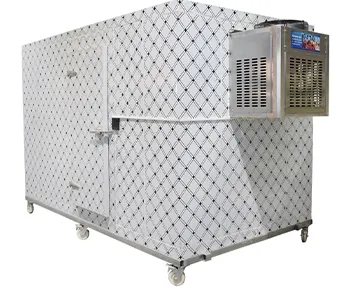Comprehensive Guide to Premium Industrial Chiller Features and Performance Standards for Optimal Efficiency
High-Quality Industrial Chiller Specifications
In the realm of industrial processes, maintaining optimal temperatures is crucial for enhancing productivity and ensuring equipment longevity. High-quality industrial chillers play a pivotal role in this aspect, providing reliable cooling solutions across various sectors, from pharmaceuticals to food processing and manufacturing. This article delves into the specifications and features that characterize high-quality industrial chillers, contributing to their effectiveness and efficiency.
Cooling Capacity
One of the primary specifications to consider when choosing an industrial chiller is its cooling capacity, typically measured in tons or kilowatts (kW). High-quality chillers can offer a wide range of cooling capacities to accommodate various industrial needs. A chillers' capacity must match the thermal load of the application it serves, ensuring it operates efficiently without excessive energy consumption.
Type of Chiller
Industrial chillers are generally classified into several types air-cooled and water-cooled. Air-cooled chillers are often preferred for smaller applications due to their lower installation costs and easier maintenance. Conversely, water-cooled chillers are more efficient for larger applications, offering higher cooling capacities with lower operational costs. High-quality industrial chillers provide flexibility in design, allowing for customization based on the needs of the facility.
Energy Efficiency
Energy efficiency is another critical specification that reflects the operational cost of running a chiller. High-quality chillers typically feature a high Energy Efficiency Ratio (EER) or Coefficient of Performance (COP), which measures the cooling output to the energy input. Enhanced energy-saving technologies, such as variable speed drives, advanced heat exchangers, and intelligent control systems, are integral in delivering superior energy efficiency. This not only reduces operational costs but also minimizes the environmental footprint of industrial processes.
Temperature Control
high quality industrial chiller specifications

Precise temperature control is vital for many industrial applications. High-quality chillers offer advanced temperature control systems that ensure stable cooling performance. Features like digital display panels, integration with Building Management Systems (BMS), and adjustable set points enable operators to fine-tune temperatures according to the specific needs of their processes. Additionally, built-in safety features, including alarms for high/low pressure and temperature monitoring systems, ensure safe operation.
Durability and Construction
The construction quality of a chiller plays a significant role in its durability and maintenance. High-quality industrial chillers are built with robust materials such as stainless steel or corrosion-resistant coatings to withstand harsh environmental conditions. Furthermore, well-designed chillers feature accessible components for easy maintenance, reducing downtime and prolonging the unit's lifespan.
Noise Levels
Noise can be a significant concern in industrial environments. High-quality chillers are designed to operate quietly, incorporating sound-dampening technologies and specifications to reduce operational noise. This aspect is particularly important when chillers are installed in proximity to workspaces or residential areas.
Compliance and Certifications
Compliance with local and international standards is a hallmark of high-quality industrial chillers. Certifications such as ASHRAE, AHRI, CE, and ISO ensure that the chillers meet specific safety, performance, and environmental guidelines. Choosing chillers that adhere to these standards reflects a commitment to quality and reliability.
Conclusion
High-quality industrial chillers are essential components in various industrial applications, providing reliable cooling and temperature control. With crucial specifications such as cooling capacity, energy efficiency, and durability, industries can significantly improve their operational efficiencies and reduce energy costs. By incorporating advanced technologies, these chillers not only meet but exceed the demands of modern industrial processes, making them invaluable assets in today’s competitive landscape. When investing in industrial chillers, understanding these specifications is key to selecting the optimal unit for specific needs.






